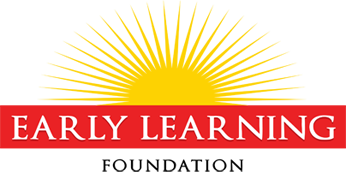Teach Less, Learn More: Building Competency in Essential Math Outcomes
Teach Less, Learn More: Building Competency in Essential Math Outcomes
For decades American schools have been engaged in a failed experiment, attempting to cram more content than humanly possible into a typical teaching day, and asking children to learn overwhelming content at younger and younger ages without taking the time to build the foundational skills needed for learning or behavioral success. We’ve created anxiety-filled classrooms in which children are less likely to fall deeply in love with learning. We’ve done this even in the early childhood years, which is the most important learning phase in the life of a child. We’ve even raced through early math instruction, covering crucial content without ensuring student learning.
The outcome that matters is not what we covered, but rather what our students have deeply learned and can apply in their lives. And it also matters whether they are falling in love with the study of math.
Where We Stand
Our standard math instructional practices are not working for many children. By the beginning of fourth grade, the point at which we can accurately predict long-term learning outcomes, only 41% of American children are at proficient math levels. Even fewer children living in poverty are proficient. By eighth grade, 34% of US students are math proficient and by twelfth grade we are down to 24% proficiency among the students still in school. Among African American twelfth grade students in the city of Detroit, 6% of students are proficient in math.
In the world of technology, innovation, and constant change, math learning success is relevant. It matters. Our choice to race through math instruction without building basic skills and success is killing the learning futures of our children.
A New Approach
Let’s consider a different approach. A rich and interesting math curriculum should include projects and activities, allow students to move to higher levels of challenge as soon as they are ready, and provide children all the time needed to develop essential skills. To teach this way, teachers cannot race through the same lesson each day with all students. There needs to be time for re-teaching and extra practice until students are fully competent in identified essential skills.
Competency-based learning begins with the identification of crucial skills or knowledge, which you need for ongoing success. In one example of competency-based learning, the Essential Math Skills Inventory for kindergarten identifies four essential math outcomes: Demonstrates counting to 100; Has one-to-one correspondence for numbers 1-30;Understands combinations (to 10); Recognizes number groups without counting (2-10). These are examples of the non-negotiable skills that every child can develop if we give teachers permission to quit racing through ridiculous lists of non-viable content objectives. Some students may need months of practice and play to develop full proficiency in these skills. Some may be ready to move on more quickly. Good teaching makes accommodations for these differences, and gives students what they need at their level, to help them achieve essential outcomes while helping them fall in love with learning.
Building crucial learning skills is not a race. By slowing down the pace of instruction and allowing every young child to fully develop essential skills, we could improve the learning future of our children. This is the approach used in the higher-performing school systems in the world. With these skills in place, our children will have the capacity to be great learners throughout their entire lives.
Bob Sornson was a classroom teacher and school administrator for over 30 years, and is the founder of the Early Learning Foundation. He is a national leader calling for programs and practices which support early learning success, the development of self-regulation and empathy, and parent engagement.
Bob is the author of Essential Math Skills: Over 250 Activities to Develop Deep Understanding, the Pre-K to Grade 3 Essential Skill Inventories, Stand Up and Speak Up for Yourself and Others, Stand in My Shoes: Kids Learning about Empathy, Creating Classrooms Where Teachers Love to Teach, The Juice Box Bully, and many other books.
